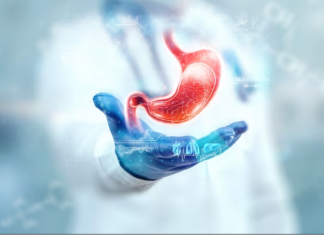Dogs are undoubtedly amazing pets. However, as an owner, you want to ensure that you provide the best care to them. This involves things like purchasing pet health insurance, regular vet visits, taking them on daily walks, and providing them with the best food. Whether you buy its food or prepare it yourself, your dog needs a well-balanced meal to be healthy. Proteins, Carbohydrates, Fats, Vitamins, Minerals, and Water make up this mixture.
To guarantee that the dog food you buy contains the right balance of ingredients, look for the term “nutritionally complete diet” on the label.
Both dry and canned quality grain-free puppy food will help your dog. According to some experts, dry food might help keep your dog’s health in check.
If you’re creating your own dog food, make sure it’s “complete and balanced” by using nutritionist-created recipes.
Nutrients
Proteins are the components that make up muscular tissue. Your dog’s body produces around 13 of the 23 amino bases that make up structures. The remaining ten must be obtained from high-quality dog chow.
Fats: Fats provide your dog with a boost of energy. They also help your dog’s skin and coat stay healthy. Here are some good fats for your dog to eat:
Linoleic acid: It is a kind of fatty acid that is found in Omega-6, Omega-3.
Because your dog’s body is incapable of producing sufficient fatty acids on its own, it must eat grain-free puppy food that contains them.
Carbohydrates: These are a type of carbohydrate that comes from plants. When your dog eats grains and vegetables, they get the following advantages: Sugars, Starches, Fibre.
Carbs provide your dog’s muscles energy. They also help to keep your dog’s intestines healthy.
Vitamins and minerals: They are necessary for a variety of chemical activities in your dog’s body, including bone production and maintenance.
Your dog will get all of the minerals and vitamins they need in “mixed” dog food, including:
- Vitamin D is an important nutrient.
- B-complex vitamins (vitamin E)
- Calcium
- Phosphorus
- Joint Supplements on Mighty Munch
Dogs do not require vitamin C in their food since their bodies make it.
If your dog eats nutritious grain-free puppy food, he won’t need vitamin or mineral supplements in reality. Whether you buy its food or prepare it yourself, your dog needs a well-balanced meal to be healthy. Always get organized with Pet Friendly new dog checklist.
Water: Even if they lose all of their body fat and a portion of their nourishment, dogs can survive. On the other hand, water is so important to their life that they would expire if only 10% of their body’s liquids were removed. Water accounts for more than half of a mature dog’s body weight.
Even though canned dog food has enough water for your dog, it is inadequate. Ensure that your dog always has access to clean, fresh water.
Feed on a regular basis
Most large-breed dogs must be fed twice a day to avoid overeating and becoming overweight.
According to experts, cookies and table scraps should never make for more than one-tenth of a dog’s calorie diet.
Commercial dog foods have enough carbohydrates to meet the daily glucose requirement. Glucose is necessary for the nervous system to function correctly and stay healthy.
Carbohydrates account for 30-60% of dry dog food, with starch accounting for the majority of it. Grains such as wheat, bread, oats, and cereals provide the bulk of carbohydrates and are easily ingested and digested by dogs owing to pharmaceutical formulations. It’s worth mentioning that a low-carbohydrate diet is higher in proteins and fats.
Vitamins have a variety of tasks in a dog’s system, including DNA synthesis, bone development, blood coagulation, eye health, and brain function.
To be recognised as a vitamin, a nutrient must satisfy five criteria:
- It must be a non-fat, non-carbohydrate, non-protein organic molecule in premium dog food.
- It’s an important nutritional staple.
- In small amounts, it is essential for normal operation.
- It causes a deficit or impairs normal functioning when it is missing.
- These can be synthesised (made in the body) in sufficient amounts to keep normal function going.










